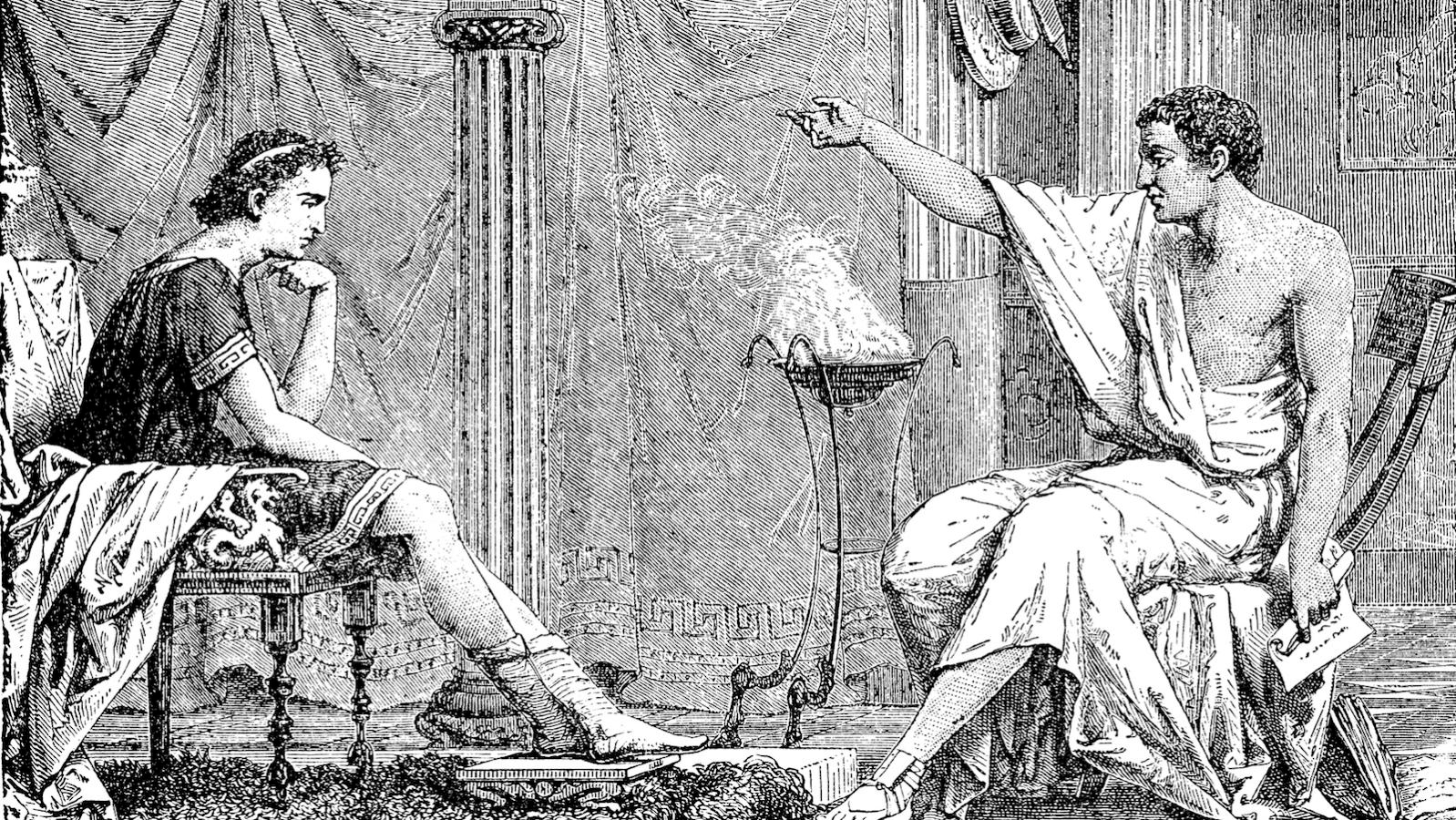Aristotle was a renowned fourth-century B.C.E. Greek philosopher. Astonishingly, there is no reference in the Talmudic literature to Aristotle or to any other famed Greek thinker even though the Palestinian Rabbis, at least, appear to have had some familiarity with Greek thought. It is possible that Aristotle and the others were not mentioned by name intentionally in order to avoid too much contact and concern with Greek opinions.
In the Middle Ages, when Greek thought in its Arabic garb had penetrated the circles of the Jewish philosophers, Aristotle is quoted and his opinions discussed. Maimonides goes so far as to write that with regard to mundane topics Aristotle’s views are superior to the opinions on such topics of the prophet Ezekiel, in other words it is not the task of a prophet, but of a philosopher and scientist, to explore and explain the natural world; the prophet’s task is to bring God to the world.
Maimonides’ Guide of the Perplexed is largely devoted to an attempt at reconciliation between Aristotelian thought and the teachings of the Torah. Maimonides does not follow Aristotle blindly, however, and adopts the traditional Jewish view on such matters as creation rather than the Aristotelian view that matter is eternal with God.
Other medieval Jewish philosophers such as Crescas were far more critical of Aristotelianism. Unwilling to grant Greek thought originality over Jewish thought, later Jewish legend makes Aristotle a member of the party that is supposed to have visited Jerusalem with Alexander the Great, where the philosopher met with Jewish sages whose pupil he became.
With your help, My Jewish Learning can provide endless opportunities for learning, connection and discovery.
Thus there is no conflict between Greek philosophy and Judaism because Greek philosophy is really nothing but Jewish philosophy. Jewish thinkers who opposed the whole philosophical enterprise scorned the notion that Aristotle had anything to teach the Jews, although even in these circles there is a kind of grudging admiration for the attainments of the Greek thinker.
Reprinted from The Jewish Religion: A Companion, published by Oxford University Press.



